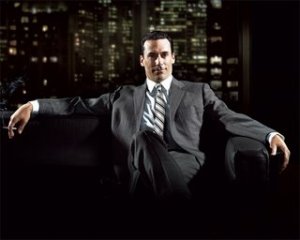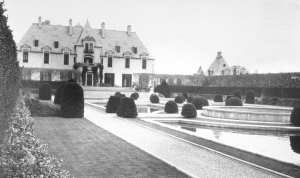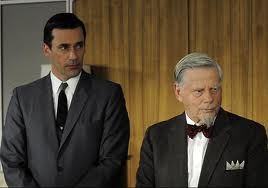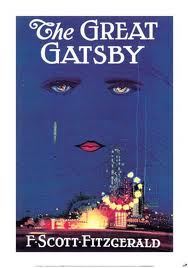They’re endlessly resourceful and nearly always men. Resourceful because they have to weave lies complex enough to stretch to cover a whole life. Resourceful because of the effort they put into constructing a new life. And resourceful in recognising and seizing the opportunities needed to build their fictions.
There are different types of made-up men. One group is made up, essentially, of fraudsters who mint new reputations rather than new identities. In literature, Dickens’ Mr. Merdle and in real life, Bernie Madoff (a Dickensian name in itself) fall into this group.
Then there are those who become new people to evade justice. Recent times have seen the astonishing case of Clark Rockefeller who, after abducting his daughter, saw his carefully-constructed edifice crumble daily in the newspapers, until he stood exposed: not a wealthy American but a German fantasist.
Similarly Sara Jane Olson (one of the few made-up women) crafted her middle-class suburban life to hide the fact that she was, in truth, Kathleen Soliah, a member of the terrorist Symbionese Liberation Army.

But there are those who have cloaked themselves in a new identity for the sake of that identity itself and for the chances that a new life brings. There may be criminality and fraud involved, but essentially these made-up men are dreamers: naïve and dishonest in a strangely honest way.
For these made-up men the paradigms are F. Scott Fitzgerald’s Jay Gatsby and his modern-day re-incarnation, Don Draper of the US TV series, ‘Mad Men.’
They have a lot in common, these two. Both are wealthy, attractive and successful; admired, envied and resented by others. Both have the knack of knowing what other people’s desires are and the skill to use that knowledge.
And both are hiding their true identities. They both come from impoverished farming families and seem destined to lives of hardship and failure until war and opportunity gave them the chance to start afresh as a new person.
In Fitzgerald’s novel, Gatsby’s own version of his life goes like this: he’s the son of wealthy Mid Westerners who travelled ‘like a young rajah in all the capitals of Europe’ before fighting in France in the First World War. Then follows bravery and decoration, falling in love with the eighteen-year-old Daisy and five months in Oxford. In subsequent years he becomes fabulously successful and famous with a giant house on Long Island, although even this is said to be ‘a factual imitation of some Hôtel de Ville in Normandy.’
In reality, he is James Gatz, a young man born to ‘shiftless and unsuccessful farm people from North Dakota.’ A young man whose determination to improve his lot, leads him to embark on a punishing timetable of self-improvement study and exercise, taking hard, physical work on the coast until a millionaire yachtsman offers him a job and the chance to escape.
The young man works on fleshing out his new identity of Jay Gatsby until war gives him the chance to shine and after the war, crime enables him to achieve the wealth to match his conception of himself.
In the same part of the United States, thirty or forty years later, Don Draper is one of the most admired, envied and resented advertising creatives on Madison Avenue. With a proud war record in Korea, he is wealthy, successful and attractive to women at the same time as living an apparently idyllic suburban life in Westchester County, north of New York, with a beautiful wife and children. He has it all.
But like Gatsby, his life is a lie. His name is not Don Draper but Dick Whitman, a young dreamer from an impoverished farming family. In flashbacks we are shown his religious stepmother, his cynical and double-dealing father and a life of hardship.
It’s the Korean War that presents Whitman with the opportunity to start afresh, stealing the identity of a badly burned man: the real Donald Draper. He finds work as a used car salesman until taking his selling skills into the welcoming world of advertising.
For both Gatsby and Draper, war is the turning point. The fog of war allows concealment. Dick Whitman forges his new identity in the crucible of a bloody explosion, snatching Draper’s dog tag from his charred and unrecognisable body. He’d volunteered for the doomed mission. When Draper asks him why, he says simply, ‘I wanted to leave.’
After the war, Gatsby is defined in the eyes of the teenage Daisy, by his uniform, which is why she assumes that the young major is from as wealthy a background as she is. In fact, he is a
penniless young man without a past and at any moment the invisible cloak of his uniform might slip from his shoulders.
He’s only wearing his uniform because he can’t afford civilian clothes. But the uniform is a useful disguise, it is that ‘invisible cloak’ that hides social differences and allows him to make progress as Jay Gatsby.
Something else that allows both Gatsby and Draper to maintain their multiple lives is the habit of strict divisions between different parts of their lives.

In fact, in ‘The Great Gatsby’ all the characters divide their time between their Long Island homes and New York itself. But the division is much deeper and more symbolic than simple commuting. Gatsby keeps his criminal life contained in Manhattan (for most of the time at least); his antagonist, Tom Buchanan carries on his adulterous affair there.
The journey from outer suburbs into the city, whether by train or by car, is symbolic of the transition from one mode of life to another. From broadly well mannered, well-heeled society in commuter towns to a more venal, seedy and sometimes criminal society in Manhattan. New York, with its ‘racy adventurous feel’ is the setting for drunkenness, debauchery and mercenary moneymaking. It’s the city of carnality, crime and commerce. And travelling to it opens new possibilities as the novel’s narrator, Nick Carraway, states:
Anything can happen now that we’ve slid over this bridge … anything at all.
Even Gatsby could happen, without any particular wonder.
It’s the city of alternative lives, of different possibilities and the ability to slide over the bridge, from one world to another is crucial for maintaining the fiction that is Jay Gatsby.
That symbolic division of life is in Mad Men too. Don’s idyllic suburban life progresses seemingly evenly in Westchester but his dalliances and drinking as well as his boardroom battles take place largely in Manhattan. When the dividing lines blur, the strain on the complex lie of his life increases. Draper’s affair with a teacher at his daughter’s school brings the philandering dangerously close to home.
If compartmentalising is crucial to the made-up men, so is complicity. Part of the reason they succeed in creating and sustaining is that others let them. There are many openings. If as Nick Carraway says ‘intimate revelations’ are ‘marred by obvious suppressions’, allowing these suppressions to go unchallenged creates an opening into which they can grow. That’s partly politeness, partly a refusal to believe that someone is lying and partly a desire for the fiction to be truth.
Nick is given ample opportunities to pick holes in Gatsby’s story before the final revelation, opportunities he fails to take up. Gatsby refers to San Francisco improbably as the mid west; Nick simply says ‘I see.’ Gatsby slips up by saying he earned his money rather than inherited it and Nick is content with his hurried explanation.

In Don Draper’s case, the agency boss, Bert Cooper, is presented with evidence that his star employee is ‘a fraud and a liar.’ His response: ‘Who cares?’ The real Draper’s widow knows the truth and refuses to expose him because of the unlikely friendship and mutual support they offer each other.
But the made-up men are always on the verge of exposure. Don Draper’s first crisis comes with Bert Cooper comes after his resentful subordinate, Pete Campbell, discovers his secret. More dangerous is his wife’s discovery of that same secret and the far greater risk of what she might do with that knowledge.
A drunken man at Gatsby’s party seems at least to guess at the truth and is surprised that the books in his host’s library are real. ‘It’s a triumph. What thoroughness! What realism!’
Both men are surrounded not just by complicity, but also by people who are deceitful and as dishonest as they, if not more so. ‘They’re a rotten crowd,’ shouts Nick to the doomed Gatsby. ‘You’re worth the whole damn bunch put together.’
And they are a rotten crowd: the ‘foul dust that floated in the wake of his dreams.’ A ‘secret society’ of privilege, wealth and entitlement that’s in stark contrast to Gatsby’s doomed romantic dream world. Jordan Baker, for all her arch and languid posing, is a liar too and may have cheated in a golf semi-final. Even the narrator, Carraway has deceit in his DNA. His family has a tradition that they’re descended from dukes. They’re not. They’re hardware store owners descended from a civil war draft-dodger.
Then there is Tom Buchanan, the anti-Gatsby. Gatsby’s apparent opposite in every way. ‘Enormously wealthy,’ Buchanan is physically imposing: ‘sturdy’, with a ‘wholesome bulkiness’ and a ‘body capable of enormous leverage – a cruel body.’ In the end it’s hard enough to shatter Jay Gatsby’s fragile false identity: ‘Jay Gatsby had broken up like glass against Tom’s malice.’
But Buchanan’s life is also a lie. Philandering from the earliest days of his marriage, ‘he’s got some woman in New York’ and thinks nothing of abandoning his seemingly idyllic commuter town life with a beautiful wife, child and house for afternoons spent in a seedy Manhattan apartment. He told his mistress that his wife wouldn’t divorce him because she’s Catholic. She isn’t.
Similarly ‘Mad Men’ is populated with liars, schemers, failures and those who, like the Buchanans, are members of the ‘secret society’ with a sense of entitlement from birth. People like Pete Campbell who tries to blackmail Draper into promoting him. ‘Why?’ asks Draper. ‘Because your parents are rich? You’ve been given everything.’ Against such a backdrop of unpleasant people, neither Draper’s nor Gatsby’s crimes seem so bad.
Why do they do it? What makes someone want to throw away everything they had to begin again? The obvious motive is to escape poverty, thwarted ambition, cruelty. ‘I just wanted to leave,’ Dick Whitman tells the real Don Draper.
But people escape grinding poverty without transforming themselves into an entirely new person. Why are they different?
Perhaps the key lies in their dreams. Gatz/Gatsby and Whitman/Draper are in the purest sense naïve romantics, hopeless dreamers.
The nature of their dreams is similar. They are the dreams of young boys made real. The young Whitman learns from a hobo about freeing himself from an onerous life. When he’s older and has become Draper, he tells the mistress he wants to flee with that ‘people do it every day’ and that they can ‘start over, like Adam and Eve.’ She gasps: ‘What are you? Fifteen years old?’
In another episode, Draper has fallen down the stairs and he imagines seeing his younger self at the birth of his brother. His imagined self turns out of the dream to look directly at him. Who’s dreaming whom?
Similarly Jimmy Gatz ‘invented just the sort of Jay Gatsby that a seventeen year old boy would be likely to invent’: flashy, popular, successful with women.
successful with women.
His tragedy is that he doesn’t realise that, because his life is formed from the dream of a boy, his dream is ‘already behind him.’ Like the green light beaming from the dock in front of Daisy’s house that symbolises it, his dream is insubstantial. Focussed, yes, and within reach, but ultimately ungraspable.
For all this, the made-up men are deeply attractive. Partly this is because of their mystery. People weave legends about Gatsby: he’s ‘a nephew or a cousin of Kaiser Wilhelm’s?’ Or a German spy. He killed a man. He was at Oxford. ‘Romantic speculation’ surrounds him and his gnomic silences of his life encourage such myth making. ‘What do you want? What do you expect?’
They’re attractive too, because they know how to sell, how to advertise. Daisy says to Gatsby ‘You resemble the advertisement of the man…’ He turns onto people a ‘rare smile’ that concentrates
on you with an irresistible prejudice in your favour. It understood you just so far as you wanted to be understood, believed in you as you would like to believe in yourself, and assured you that it had precisely the impression of you that, at your best, you hoped to convey.
It’s the ad-man’s skill. As an ad-man, Draper’s strength lies in understanding desire and is both celebrated for it and criticised. A hipster friend of a mistress tells him: ‘You make the lie. You create want.’ Whether it’s the women he seduces or the clients he woos, he understands instinctively what people want and how to sell those desires back to them.
When Gatsby tells his frankly rather unbelievable life story, Nick admits he’s fascinated but that ‘it was like skimming hastily through a dozen magazines.’ In the opening episode of Mad Men, a waiter says to Don Draper: ‘Ladies love their magazines.’ ‘Yes they do,’ agrees Don.
But they’re both successful sellers because they’re successful dreamers. Gatsby is driven by the belief that things – and in particular, his life – can get better. ‘I’m going to fix everything just the way it was before.’
Ultimately, you can only sell a dream, you can only pursue a dream and you can only build a new life to try to make the dream a reality, if you are an incurable optimist. That’s what Gatsby is right to the end; still thinking Daisy might call when the only person left to call is his killer. He possessed
an extraordinary gift for hope, a romantic readiness such as I have never found in any other person.
In contrast, the anti-Gatsby, Tom Buchanan, is a cynic and pessimist, believing that ‘civilisation’s going to pieces.’ He’s no dreamer.
Optimistic Gatsby may be, but ultimately alone. When all the guests finally leave his party, he’s seen as a silhouette in ‘complete isolation’. He’s shaken off with contempt by a drunk Tom Buchanan who drives off just as Gatsby comes poignantly out of the door ‘with hat and light overcoat in hand’. For all his criminality and deceit, Gatsby is the naïve one. The others really are a rotten crowd.
But is there something uniquely American about Jay Gatsby and Don Draper?
At the end of ‘The Great Gatsby,’ Carraway mediates on the part of the world in which he lives:
the inessential houses began to melt away until gradually I became aware of the old island here that flowered once for Dutch sailors’ eyes – a fresh, green breast of the new world. Its vanished trees, the trees that had made way for Gatsby’s house had once pandered in whispers to the last and greatest of all human dreams; for a transitory enchanted moment man must have held his breath in the presence of this continent, compelled into an aesthetic contemplation he neither understood nor desired, face to face for the last time in history with something commensurate to his capacity for wonder.
The European reinvention of a whole continent is embodied in one man, making explicit the link between Gatsby’s story and the American story. Gatsby’s dreams are lost in ‘dark fields’ not just of the countryside, but of ‘the republic.’ The fictional man is a version of the continent-sized fiction that is the United States.
The American dream, the myth of the self-made man is threaded throughout the nation’s literature and its sense of itself. It’s there in the autobiography of one of the founding fathers, Benjamin Franklin: the tale of a candle-maker’s son who reached the highest office by his own efforts.
Jay Gatsby is the ultimate embodiment of that American dream; literally a self-made man, with his childhood self-improvement timetable of early rises, exercise, study and his life-long attempt to reinvent himself. Gatsby’s real father believed his Jimmy had a big future: ‘he’d of been a great man … He’d of helped build up his country.’
Bert Cooper says exactly the same to Draper’s would-be unmasker:
This country was built and run by men with worse stories than whatever you’ve imagined here.
Don Draper, like Jay Gatsby, is an extreme version of the American ideal. They’ve both shaken off unwanted lives like snake skins and re-created themselves anew. They’re not just self-made men. They are self-made-up men.
I enjoyed reading this so very much, it is exactly what I came to the computer this morning hoping to find (a comparison of Don Draper and Jay Gatsby). I just finished reading The Great Gatsby and felt there was some similarities to Draper but couldn’t really pinpoint what they were. Thanks for helping me clarify my thoughts! One thing I can’t find is the date you wrote this article. Is it recent?
Thankyou so much for your kind comments. I wrote this in April 2010 after I’d watched series 3; like you I’d noticed the similarities and looking more closely at them threw up some interesting points to think about. I had planned to compare two other made-up men (although one was real): Merdle and Madoff. Maybe I’ll get round to doing that one day.
brilliant analysis…but one that should have been obvious to many others,
Thanks very much; I’m very grateful. And yes, I was surprised when I first googled to see what other people had written, that there was nothing. So I wrote it myself!